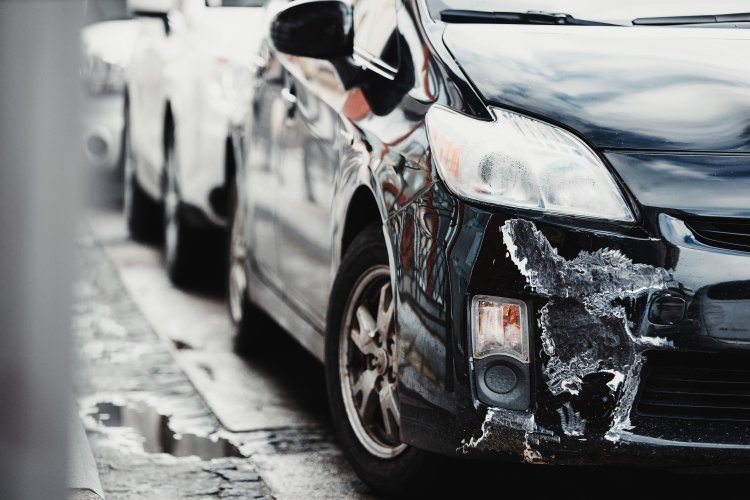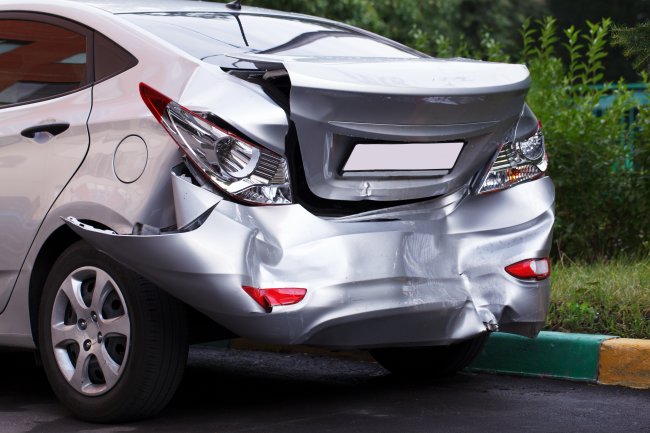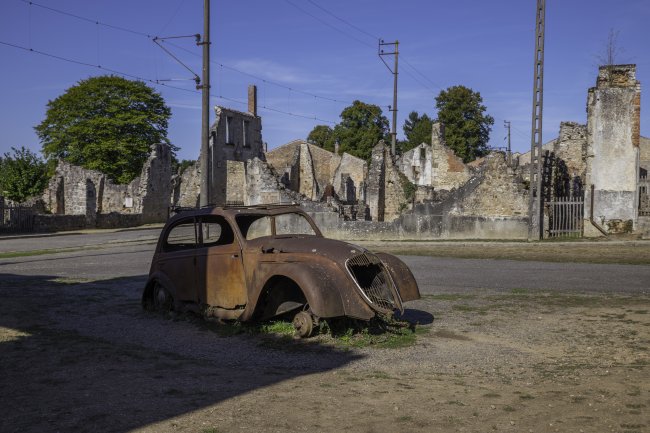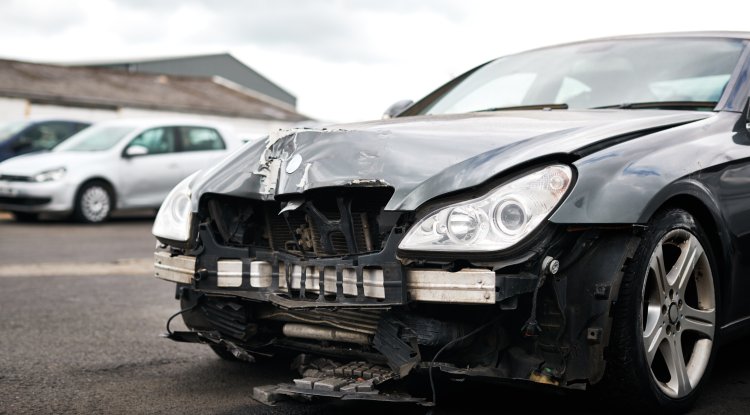Salvage Titles: 10 Key Causes
Embark on a revealing journey through the world of salvage cars in "10 Major Reasons Why A Car May Have a Salvage Title". Discover how vehicles can be totaled yet not annihilated, or resurrected after theft, and understand why natural disasters or even just modifications can lead to a salvage title. This comprehensive guide offers valuable insights for potential investors, car enthusiasts, and anyone curious about the intriguing dynamics of the salvage car market.

Salvage title vehicles are akin to eccentric cousins in the auto industry - slightly peculiar, misunderstood, and undeniably affordable. A meticulously restored salvage car fetches merely 60 percent of its clean-titled kin, leading to furrowed brows and a healthy dose of suspicion among potential buyers. The term 'salvage' strikes an ominous chord, prompting visions of thoroughly wrecked automobiles unsuitable for insurance. Let's debunk the myth today and delve into the multifaceted world of salvage titles.
1. The Auto Phoenix: Totaled but Not Reduced to Ashes
The word 'totaled' in the context of salvage cars may conjure visions of crumpled hunks of metal barely resembling their former glory. However, this term holds a more nuanced meaning in the world of insurance. It's not a death sentence for the vehicle but rather a financial decision.
When a car suffers damage, the repair costs are compared to the car's current market value. If these costs soar higher than a set percentage of the car's value, insurance companies label the car as 'totaled'. In most U.S. states, the magic number hovers around 75 percent. When the scales of economics tip, insurers deem it more practical to replace the damaged vehicle and dispatch the 'totaled' one to the auction block.
Here's where things get interesting. Body shops, with their adept knowledge of the insurance landscape, know that insurance companies possess deep pockets. Consequently, they might inflate the repair estimates. Instead of painstakingly repairing a damaged part, they opt for a straightforward replacement - an easier, more profitable route. This practice can prematurely tip a car into the 'totaled' category.
A further complication arises when certain car parts are on backorder with no estimated time of arrival. An owner can't be expected to wait indefinitely, so insurance companies sometimes choose to declare the car as salvage, again inflating the pool of 'totaled' cars.
A sizable portion of 'totaled' cars aren't catastrophically damaged but hold untapped potential as profitable ventures. In the skilled hands of a savvy buyer, these vehicles can be resuscitated and sold, turning a tidy profit. Thus, despite their ominous title, these cars can prove to be worth more than their weight in scrap metal.
MORE: Shop salvage cars, trucks, SUVs, and pickups
2. Wrath of Nature: When Disaster Strikes
The U.S. is no stranger to the temperamental wrath of nature. Floods, hurricanes, forest fires, tornados, earthquakes - you name it, we've seen it. The aftermath of such calamities often leaves insurance systems floundering in chaos. Hence, insurers opt for replacing vehicles rather than hunting down and inspecting the original.
Herein lies a catch, though - damage in such vehicles is more elusive to the naked eye. Hence, when you're on the prowl for a salvage car, make sure to inquire about its history or check it yourself using the Vehicle Identification Number (VIN).
MORE: Shop for flood damage salvage cars for sale
3. Resurrected from the Automotive Underworld: Theft Recoveries
Sadly, the land of the free and the home of the brave is also a hotbed for auto theft. As per recent statistics, the number of vehicles disappearing daily would make Houdini proud. According to the National Insurance Crime Bureau, the number has risen significantly from 156 vehicles in the past - an alarming trend. If these mechanical steeds don't find their way back home within a prescribed period - typically 21 to 30 days - insurance companies reluctantly declare them as a total loss and arrange for replacements.
In certain states, just the act of reporting a vehicle as stolen can prompt a quick shift to a salvage title. This somewhat hasty transition serves as a measure of legal protection and aids in tracking and recovery efforts.
However, much like a prodigal son, some stolen vehicles do return home. When they do, they often land on dealership lots, ready to embark on their second life. These theft-recovery salvage vehicles tend to be the low-hanging fruits in the salvage market, as they typically require only minimal repairs and a basic safety inspection to regain their roadworthiness.
Here's a nugget of wisdom for potential flippers - re-titling can work wonders for a car's resale value. If you're considering diving into the world of theft-recovery vehicle resale, be sure to give your new acquisition a clean bill of health in the form of a fresh title before putting it back on the market. Remember, perception is often the key to reselling, and a clean title can shift perception from salvage to safe.
4. A Matter of Semantics: Not Yet Re-titled
On occasion, you might stumble upon a fully restored, roadworthy salvage vehicle. While this might hint at a failed state-mandated inspection, it could also imply a less ominous scenario - the owner simply isn't well-versed with the law. As always, exercise caution, ask pertinent questions, and let a seasoned mechanic conduct thorough inspections.
5. Crafted with Love: Replica Cars
Here's a fun fact - the hobby industry thrives on kit cars, or replicas of renowned vehicles, in the States. While these personal projects offer a unique appeal, they often end up with salvage titles due to insurance reluctance or a failed state inspection. Before you drive off into the sunset with your new acquisition, remember that driving such vehicles may not be legal in certain states.
6. Dr. Frankenstein's Monster: Overly Modified Cars
Vehicles that have undergone extensive aftermarket modifications often bear the salvage title badge. For gearheads with a penchant for customization, snapping up such a vehicle on the cheap might seem like a dream come true. However, remember to don your cautious cap as well - modified cars can be challenging to insure, and if you do find an adventurous insurer, expect to cough up a premium rate. Moreover, safety and stability issues are not uncommon in these automotive chimeras, and incompatible parts could rev up further troubles down the road.
7. Age before Beauty: Classic Cars
Classic cars, even those restored to their former glory, might struggle with re-titling. Perhaps the vehicle parted ways with its original title years or even decades ago, or it underwent extensive component replacements, complicating the re-titling process. However, don't let a salvage title deter you - with some dedication, you could give a classic car its roadworthy title back.
8. Spooky Encounters: Ghost Salvages
Ghost salvage cars often cause a double-take in the car industry. They're listed as salvages in the vehicle's history report, but there's no apparent reason why. This ghost status could result from administrative errors or the car may have been involved in an accident but not adequately reported. Whatever the reason, it's always crucial to run a comprehensive background check.
9. Excessive Wear and Tear
Vehicles with excessive wear and tear that aren't worth repairing can also gain a salvage title. These cars may not have been involved in any accidents but have reached the end of their usability, thus making it more economical to sell them for parts than to restore them to a drivable condition.
10. Lemon Laws
Lastly, cars that are declared 'lemons' can also end up with salvage titles. These vehicles typically have repeated, unfixable problems right from the get-go, leading to a salvage title under lemon laws.
The Wrap-Up: Navigating the Salvage Maze
Remember, every U.S. state comes with its own unique set of policies regarding salvage vehicles. Some might even bar you from driving or buying a salvage car before it gets a roadworthy thumbs-up from an authorized inspector.
If you're venturing into the world of fixer-uppers, consider bringing along a trusted mechanic. Appearances can deceive - a seemingly undamaged salvage car might harbor irreparable internal damage. A thorough inspection by an auto expert can help you gauge the extent of the damage and decide whether it's a worthy investment.
To ease the re-titling and registration process, maintain a meticulous record of bills of sale for every major component you bought while restoring the salvage car. This documentation serves as proof of complete ownership when you register the vehicle and helps you pass inspections for re-titling smoothly.
Have any salvage stories or wisdom you'd like to share with us and fellow readers? Feel free to drop them in the comments. If you found this information helpful, spread the love by sharing this article with friends and family.
RELATED ARTICLES













